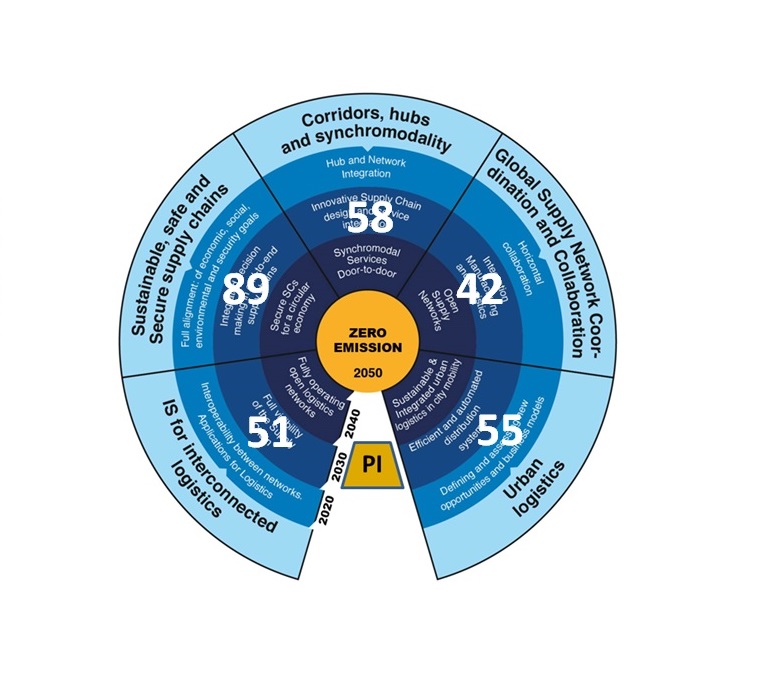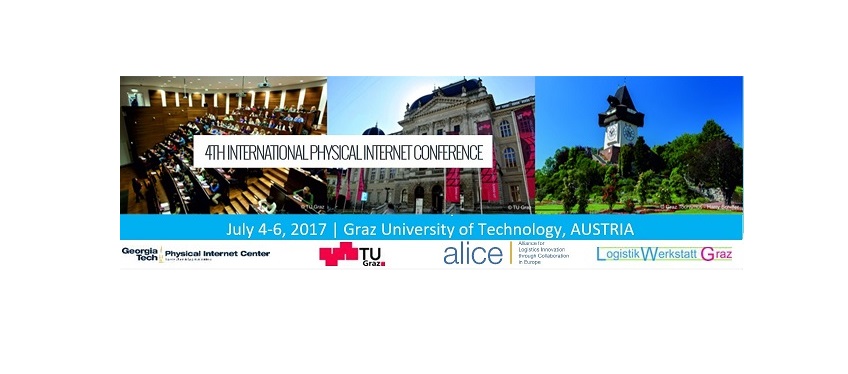
In this area you will find and overview of all projects included in the knowledge Platform and beyond. We have identified 200+ projects that are adressing specific aspects identified in ALICE Roadmaps!

In this area you will find and overview of all projects included in the knowledge Platform and beyond. We have identified 200+ projects that are adressing specific aspects identified in ALICE Roadmaps!
SELIS is aimed at delivering a ‘platform for pan-European logistics applications’ by:
- Embracing a wide spectrum of logistics perspectives and creating a unifying operational and strategic business innovation agenda for pan European Green Logistics.
- Establishing an exceptionally strong consortium of logistics stakeholders and ICT providers, that can leverage EU IP from over 40 projects so as to create proof of concept Common Communication and navigation platforms for pan-European logistics applications in month 18 deployed in 8 living labs (LLs) representing the principal logistics communities..
- Establishing a research and innovation environment using the LLs to provide data than can be used for discovery of new insights that will enable continuous value creation supporting the large scale adoption of SELIS.
The proposed Shared European Logistics Intelligent Information Space, SELIS, is a network of logistic communities’ specific shared intelligent information spaces termed SELIS Community Nodes (SCN). SCNs are constructed by individual logistics communities to facilitate the next generation of collaborative, responsive and agile green transportation chains. SCNs link with their participants’ existing systems through a secure infrastructure and provide shared information and tools for data acquisition and use, according to a 'cooperation agreement'. Connected nodes, provide a distributed common communication and navigation platform for Pan European logistics applications. Each Node decides what information wishes to publish and what information wants to subscribe to.
The SELIS Community Node (SCN) concept represents the evolution of a longline of research in this area. The fundamental principle is that it provides a ‘lightweight ICT structure’ to enable information sharing for collaborative sustainable logistics for all at strategic and operational levels.


In 2017 the comprehensive view on the Physical Internet from the IPIC conference merged with the technical and intralogistic view from the Logistikwerkstatt Graz for a promising format. Both the IPIC and the Logistikwerkstatt Graz are well established international conferences with broad contribution from industry and research. The purpose of our fourth Physical Internet conference was to bring together all interested parties and continue sharing of ideas to further build foundations and momentum towards the emergence of efficient and sustainable interconnected logistics. The Institute of Logistics Engineering (ITL) at Graz University of Technology hosted this international event July 4-6, 2017 in Austria on its campus.
The conference included keynotes from key stakeholders of supply chains (manufacturers, retailers, 3PL and academics) and stimulated the discussions in several workshop sessions. New business models, enabling technologies and experimentations already underway were presented, making this meeting a unique opportunity to learn, network and discuss the latest results and challenges about interconnected logistics.
In this content area you will find all contributions made to IPIC 2017 in Graz www.pi.events/IPIC2017/
In this section you will find Reference Documents on the Physical Internet

This section contains materials produced at MINES ParisTech in collaboration with Hong-Kong University and with the support of the Physical Internet Chaire and its partners.
Global Supply Network Coordination and Collaboration Working Group deals with coordination and collaboration among stakeholders in global supply networks. Coordination and collaboration refer respectively to vertical and horizontal synergies along and across different supply-chains. In this context, Supply Network Coordination deals with the synchronization and dynamic update of logistics and transport plans, across modes and actors (manufacturers, retailers, logistics services providers, carriers, terminal operators, etc.). Supply Network Collaboration deals with maximising resources utilization, such as vehicle and infrastructure capacity, by matching demand from multiple shippers with available transport and logistics services from different modes and service providers. Both Coordination and Collaboration can produce significant gains in terms of both efficiency and sustainability and represent a big step towards the Physical Internet, leading the transition from individually managed supply chains to open supply networks
If your company is a member and you would like to join this group, please contact ALICE secretariat at info@etp-alice.eu so we grant you access.
Have a look to ALICE membership and how to join if you are not sure or if you would like to know more on membership.